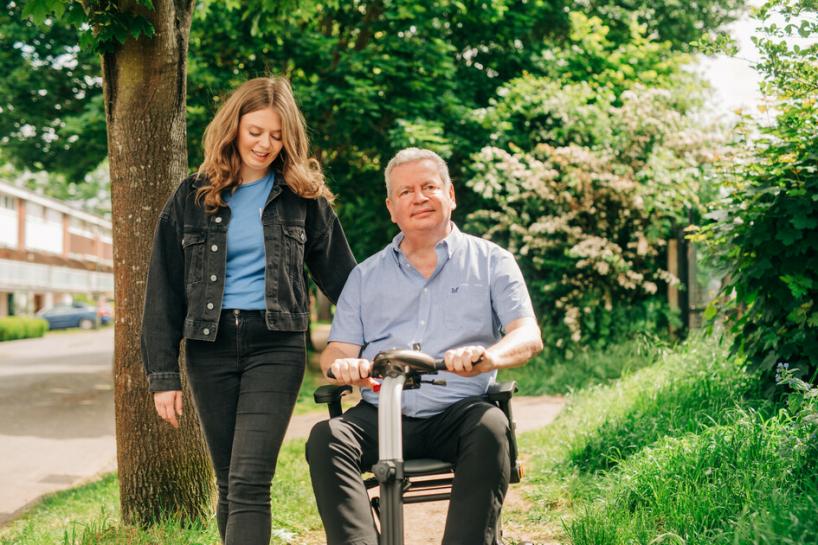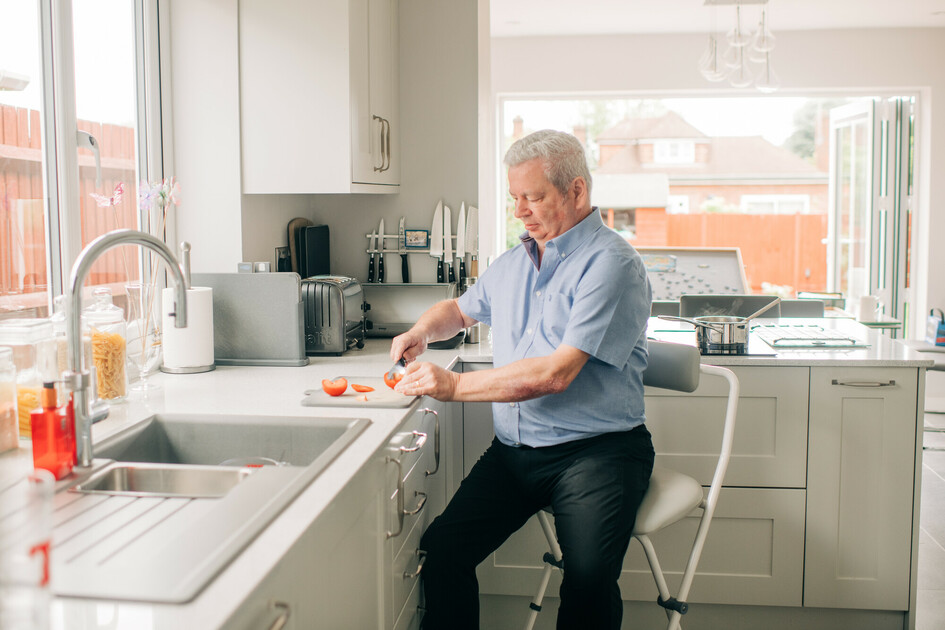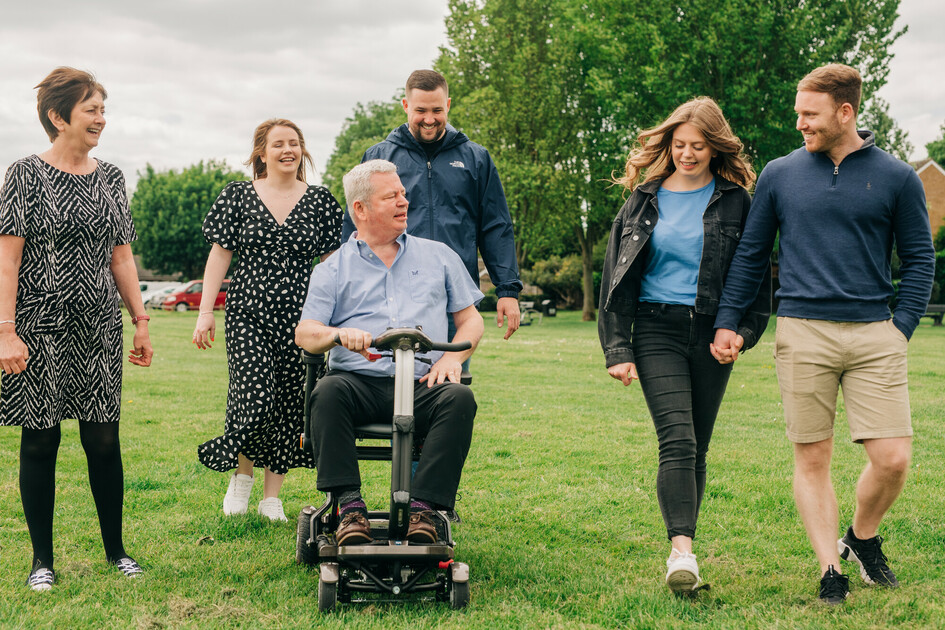
We call having FSHD our superpower, and the positive thing about having the condition is certainly the fact that we can relate to each other in a way that not many others can – my dad is my hero and someone that I have always looked up to.
My dad, Andy, first noticed symptoms in his mid-late 30s as his ability to play sports deteriorated, but he thought it was just due to him getting older. When he found out more about the condition through two of his siblings' diagnoses, he started to realise that these symptoms were possibly signs of FSHD. In his 40s he found that some things were becoming more challenging, like changing a lightbulb or taking me and my sister cycling and swimming.
I was always a keen dancer growing up and decided to go to University in Chichester. But in my first year I started to notice that I could no longer do a sit up and raise my arms for long, which ultimately led to me dropping the dance component of my degree.
By this time, Dad and I were quite certain that we had FSHD, but we tried to ignore it and continue living life as it had been up until then.
Approaching a diagnosis
When Dad was in his 50s, it started to become hard to hide his symptoms as he struggled to get up stairs, lift his briefcase, set up presentations for work, play sports, and reach up into cupboards.
When I got back from travelling in Australia when I was 23, I noticed a significant change in the mobility in my own right shoulder and found it hard to brush my hair. I decided that I wanted to get a diagnosis to understand what was happening to my body.
We talked about it as a family and Dad raised concerns about how a diagnosis would potentially impact my future with things like mortgage applications, insurance costs, and limiting my career opportunities.
Learning to live well with FSHD
We decided that we would go to an appointment together to meet a Neurogenetics Specialist, who then tested Dad and it came back with a FSHD confirmation.
Dad felt relieved that his diagnosis was confirmed so that he could move forward in understanding how to live with this for the rest of his life. It brought him closer to his affected siblings, and opened up support for my parents through our introduction to MDUK, which helped us to learn more about our condition.
Once Dad had his diagnosis, he felt it was important that I also knew how to live life with FSHD and he was supportive of me getting an official diagnosis.
It provided clarity on what was happening to my body and gave me a lot of motivation to figure out how to live life to the fullest with FSHD. I had therapy to digest the news, which helped me massively in coming to terms with my diagnosis and grieving the life I thought I might have had.
Life hacks and adaptations
My biggest challenges are anything that requires shoulder muscles. Things like carrying shopping, putting things into high cupboards, and washing and styling my hair. I’ve figured out hacks to do things like using the wall to hold up my arm and Dad has an extended hairbrush so he can brush his hair.
My husband, Liam, is the shopper in our little family of two and he does a lot around the house to help me. He also encourages me to push myself when I need a little kick into action.
Mobility is difficult for Dad - moving is painful and he finds it very hard to walk, so things like independent personal hygiene, getting changed and lifting a glass or fork to his mouth are hard. He now has an electric scooter for getting around and uses a rollator for shorter distances. My parents have introduced lots of adaptations to their home, like a wet room, and an oven and microwave at chest height in the kitchen. These have opened up more independence for Dad which has been empowering.

It’s definitely made us closer
We celebrate each other's achievements, seemingly simple things like Dad walking to the end of his garden and back, but also the big things like Dad being able to walk me down the aisle at my wedding in April 2022.
We bring each other’s spirits up to remind ourselves that we are lucky to have what we have in life. We talk a lot about our challenges and give each other advice where we can. We share information, and we learn and support each other on difficult days.
Our family is very close. And my mum is a wonderful carer. She says it’s a privilege to be able to support Dad and finds his positivity inspirational. We can call on each other whenever we need emotional support and openly discuss things that are challenging for Dad and me (there’s never an elephant in the room!).

Our advice – build a support network and get help from MDUK
MDUK has been excellent in providing us with a range of support, from explaining and helping Dad apply for disability benefits to hosting the FSHD conference which gave us information and hope for the future.
I would recommend therapy to anyone who has recently got a diagnosis. I found it a great way to digest the news and to find a productive, positive path forward.
Your support network is such an integral part of living life with a muscle-wasting condition. Keep talking to the people around you and make them aware of what you need. They can help ensure you are able to live your life to the fullest.
Finally, get as much information and help through organisations like MDUK – we would have been lost without them.
We understand that a diagnosis of a muscle-wasting condition can change everything, and there are challenges when you live with a progressive condition. Having access to the right information and advice can make all the difference.
Our Information, Advocacy and Care Team are here to support you. Call our free helpline on 0800 652 6352 (open 10am - 2pm, Monday to Friday) or email info@musculardystrophyuk.org.
